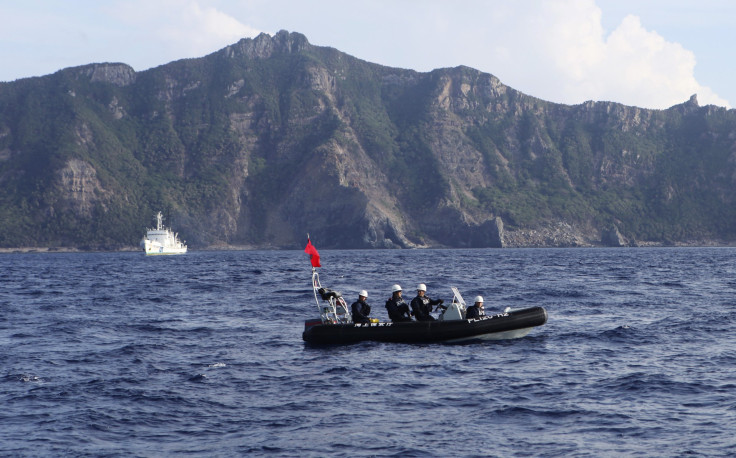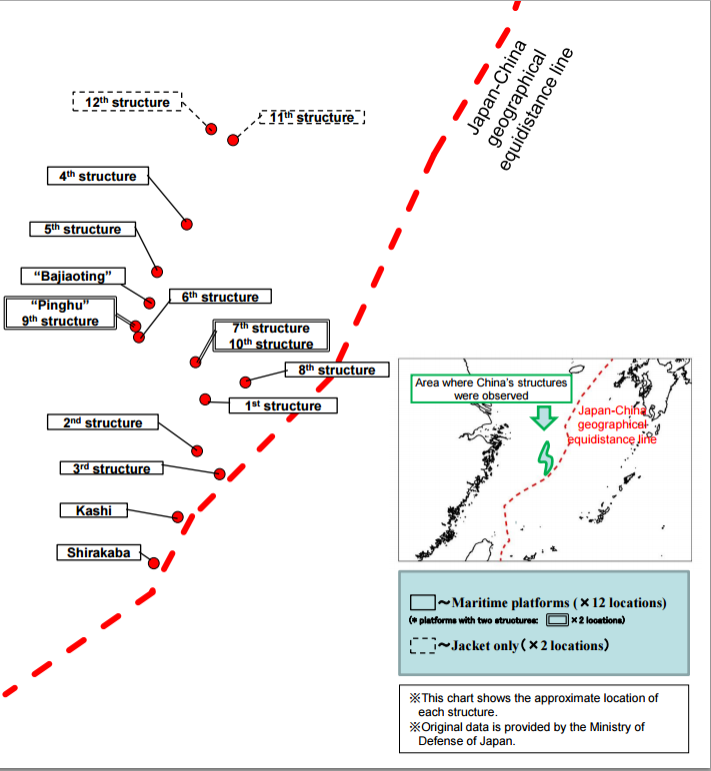Japan-China Territorial Dispute: Map And Photos Of China Gas Project Released By Japanese Officials

Japanese officials have released a public map and a set of aerial photos that show China’s unilateral gas-platform development in the East China Sea. The gas project has been a point of contention between Japan and China because of its location, near the proposed “median line” between the two countries.
“In recent years, China has accelerated its development activities of natural resources in the East China Sea, and the government of Japan has confirmed that there are 16 structures in total on the Chinese side of the geographical equidistance line between Japan and China,” the Japanese Foreign Ministry said in a statement Wednesday.

Japan has reignited its concern over the proximity of China’s gas project, which lies on the Chinese side of the line -- but only about 16 miles away from Japan’s exclusive economic zone. This raises concern for Tokyo because it means the gas platform could be siphoning gas from Japan-owned seabeds.
Because China and Japan both have stronghold claims in the East China Sea, mutually agreed-upon demarcations have not been made. Japan believes the development of the gas project should stop until an agreement can be made.
"In this regard, under the circumstances pending maritime boundary delimitation, it is extremely regrettable that China is advancing unilateral development, even on the China side of the geographical equidistance line,” the Foreign Ministry said. “The Government of Japan once again strongly requests China to cease its unilateral development and to resume negotiations as soon as possible on the implementation of the ‘June 2008 Agreement’ in which Japan and China agreed to cooperate on the development of natural resources in the East China Sea.”
For its part, China rejected the objections made by Japan because China is operating strictly on the Chinese side of the median line.
"China's oil and gas exploration in undisputed waters of the East China Sea under China's jurisdiction is justified, reasonable and legitimate," China's Foreign Ministry spokesman Lu Kang said in response to criticism. "China's construction on some garrisoned Nansha islands and reefs, which does not affect or target any other country, is fully within China's sovereignty and beyond reproach."
© Copyright IBTimes 2024. All rights reserved.






















